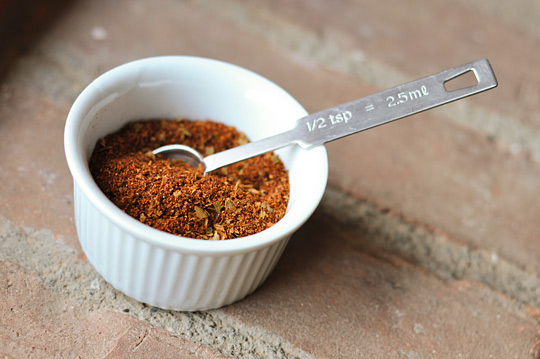The politics of chili powder
June 9, 2020 by DarcieWhen I pull open the drawer in which I store my spices, politics is usually not at the forefront of my thoughts. Instead, I’m envisioning a dish and pulling together the herbs and spices that will make it sing. But spices and politics are inextricably linked: wars were fought over and empires built on the trade of spices. The spice trade is linked to subjugation, slavery, and colonialism, and the effects of this can still be seen today. In the New Statesman, editor Stephen Bush discusses the history and politics of one spice blend in particular – chili powder. (Free registration at New Statesman gets you four articles per month.)

Scientists believe that hot peppers developed as a defense mechanism and deterrent so fungi and mammals would leave them alone, while birds (whose sense of taste is not as refined) would eat them and thereby spread their seeds. But the quirkiest of all mammals decided they liked the burning sensation of capsaicin and cultivated the plants. Bush traces the history of chiles from their Mesoamerican roots through the European conquistadors that prompted their spread across the globe.
Bush explains that while the colonial powers that profited from the spice trade have changed over the centuries, there are still political considerations in the growing and selling of spices. The result of the manner in which spices are grown, he says, “is that very little of the value of your spices makes it back to the grower, and the environmental impact of growing them is far greater than it needs to be.” Bush provides a link to companies who are working to change that narrative.
Photo of Chili powder from The Kitchn
Categories
- All Posts (6940)
- Antipasto (2135)
- Author Articles (247)
- Book News (935)
- Cookbook Giveaways (983)
- Cookbook Lovers (257)
- Cooking Tips (109)
- Culinary News (299)
- Food Biz People (552)
- Food Online (791)
- Holidays & Celebrations (272)
- New Cookbooks (149)
- Recipes (1500)
- Shelf Life With Susie (231)
- What's New on EYB (133)
Archives
Latest Comments
- kmwyman on Rooza by Nadiya Hussain – Cookbook Review and Giveaway
- Maryd8822 on The Golden Wok – Cookbook Giveaway
- Dendav on Danube Cookbook Review and Giveaway
- sanfrannative on Rooza by Nadiya Hussain – Cookbook Review and Giveaway
- darty on Danube Cookbook Review and Giveaway
- Atroyer7 on Danube Cookbook Review and Giveaway
- demomcook on What foods do you look forward to the most for each season?
- demomcook on Danube Cookbook Review and Giveaway
- Darcie on How cookbooks can help build resilience
- mholson3 on Danube Cookbook Review and Giveaway